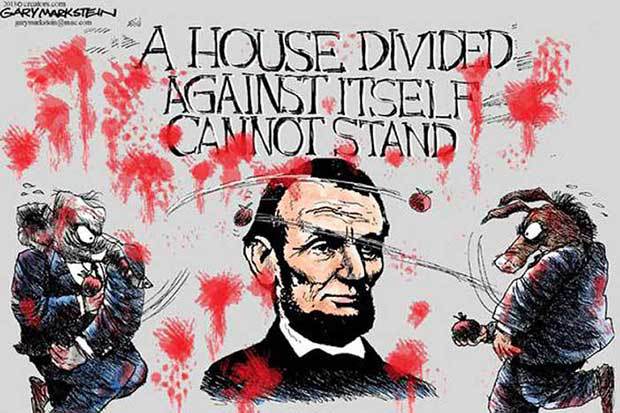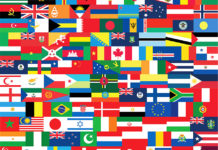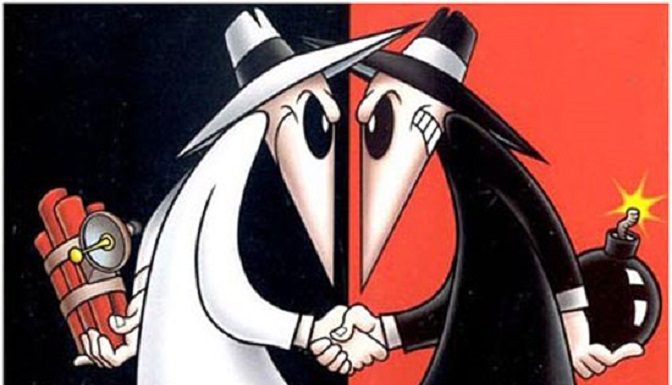For this article, I’m going to start with two assumptions many of my followers may find surprising: 1) culture is tyrannical, and 2) gender is fluid.
For the record, both of these assumptions are scientifically valid, and for the same reason: evolution. Culture is tyrannical because it was created for the past rather than the present (or the future), and as a consequence, culture needs to constantly evolve to keep up with time. Gender is fluid because it is a part of our biological makeup, and our biology is a product of evolution. Culture evolves much faster than does biology (biology can take thousands, or even millions, of years), but both are evolutionary constructs. Both evolve to meet the needs of a constantly changing world.
Western culture is the most evolved culture on Earth. This is, of course, a value statement. All cultures evolve, and different cultures differ because they have evolved around different things. I say that Western culture is the most evolved because it has evolved around values I hold dear – values that as a young man I found important enough to pledge to protecting them, but there are other cultures, and other value structures than those of the West.
Saudi Arabia has, historically, evolved around a school of Islamic thought called Wahhabism. Wahhabism treats science the same way the Catholic Church treated it during the Middle Ages and early Renaissance, which is to say that Wahhabism treats religious doctrine as absolute truth, and then gauges science based on how well it does, or does not, support religious doctrine. Such a view is no more inherent to Islam than it was to Christianity, but once Saudi Arabia became rich in oil, they were able to propagate this view throughout much of the Sunni world. The crown prince of Saudi Arabia wants to reverse that course, using Saudi Arabia’s wealth to return Islam into a religion of tolerance and peace, and though I cannot endorse everything the crown prince has done (assassinating a journalist is not acceptable), I do support the overall direction in which he wants to take Saudi Arabia, and with it, the Sunni world.
 Many cultures in the East and Far East evolved around the greatness of society. China wants not so much to become a super power, as to demonstrate the greatness of China. Becoming a super power is but a necessary component of that end. Western culture, by contrast, evolved around the notion that the greatness of a society can be determined by how well it supports the supremacy of each individual.
Many cultures in the East and Far East evolved around the greatness of society. China wants not so much to become a super power, as to demonstrate the greatness of China. Becoming a super power is but a necessary component of that end. Western culture, by contrast, evolved around the notion that the greatness of a society can be determined by how well it supports the supremacy of each individual.
Western culture has evolved over time. As hunter-gatherers (which we were for the vast majority of our evolutionary history), tribalism was an absolute necessity, with different groups competing with one another for food, water, and other resources. As a consequence, a ‘fear of the other’ is a deep part of our evolutionary upbringing. This fear is much less relevant today than it was in the past, and it is also relevant for very different reasons than it was in the past, but even today it is healthy to be suspicious of those who seek to controls others, and it is necessary to understand that as long as those who seek control have armies, ‘fear of the other’ will have some justification. Tribalism can also, however, lead to many negative things, such as racism.
Tribalism is good when it unites us against those who wish to control us, and tribalism is bad when it unites us to control, or to otherwise oppress, others. Nationalism is a form of tribalism, and is a positive thing when ‘nation’ is defined as a group of people who share a geographic location, along with certain cultural norms and values. When ‘nation’ is defined as an ethnic group, such as was the case in Germany in the 1930s, ‘Nationalism’ becomes abhorrent.
The vast majority of Americans would love to put racism into the dustbin of history, but until our biological evolution catches up with our economic reality, racism is unlikely to completely disappear. Our goal should be to ostracize it rather than to normalize it, and sadly, stories of racism sell, encouraging the media to do everything it can to make racism sound more common – and by extension, more normal – than it really is.
For a tribe to survive, it must contain both men and women. More to the point, men and women have to work together to survive against a world that has innumerable ways to kill them. For most of our evolutionary history, women were vulnerable both during, and immediately after, pregnancy, and children are still vulnerable until they reach adulthood. To the degree that cultures evolved as patriarchies, it was because of these natural vulnerabilities, and to the degree that these natural vulnerabilities have historically been real, the patriarchal nature of culture was not tyrannical so much as necessary, historically speaking. Culture, however, is always built for the past, and is always playing catch-up with the present. Modern inventions, such as birth control, have made women far less vulnerable than they once were, and though culture has adapted quickly, our culture continues to need to evolve.
We are, each of us, a bridge between the past, and the future. Culture is, quite literally, a blueprint for how best to survive in the world, but culture is a blueprint for survival in the past, and as such, our job in the present is to change culture into something relevant today. We then give our culture to the future, where our children will adapt it further to meet their times.
Culture is always evolving, and it always evolves too quickly for some, and too slowly for others. As a general rule, the elderly focus on the wisdom of the past (represented by the culture they helped create), and the young focus on the promise of the future (represented by the need for culture to adapt), and this is precisely why people tend to become more conservative as they get older. This natural conflict between young and old, between wisdom and promise, and between order and chaos, is both natural, and healthy.
The correct course of action is not to suppress conflict, but to embrace it, and to channel it in productive ways. Our culture used to be good at this, allowing opposing voices to conflict peacefully. We had what Al Gore called a ‘marketplace of ideas,’ where the best ideas gradually made their way to the top. The market place of ideas was not always pretty, but it worked.
There are some universal truths, represented by archetypical characters – characters that have been embodied in stories, over and over again throughout history, and across cultures. The two most fundamental characters are order, and chaos, and the third most fundamental character is the hero. If someone fights to move the culture too quickly, or too much, they become a force of evil trying to overturn all that is right in the world, whereas if someone fights too hard to cling to the existing culture, they become a force of tyranny trying to perpetuate all that is corrupt in the world. The hero represents the balance between the two, with both the wisdom to fight chaos, and the knowledge gained, from chaos, to confront tyranny. The hero is the one who removes what is corrupt from culture, while retaining what is still valuable in it.
The hero of today recognizes that the ideals this country were founded on still matter. At the same time, the hero sees that we have work to do to ensure that all people can thrive, regardless of gender, ethnicity, or other trivial differences that have nothing to do with competence. Conservatives, such as myself, need to understand that our recent past (the culture my age group was given) really was steeped in such things as racism and male chauvinism. Liberals need to understand that, tainted as our culture has historically been, there is much to it that is noble and proper. The hero would move forward with neither hatred for the past, nor fear of the future, but instead with a willingness to take what is noble and proper, and to extend it to everyone. If we can all agree on this task, perhaps we can all move forward together, without the animosity so prevalent in our current discourse.
I invite everyone reading this to choose the path of the hero, and to help mend our political divide.
As always, if you agree with our message, we ask that you help us spread it by sharing this post far and wide.




















